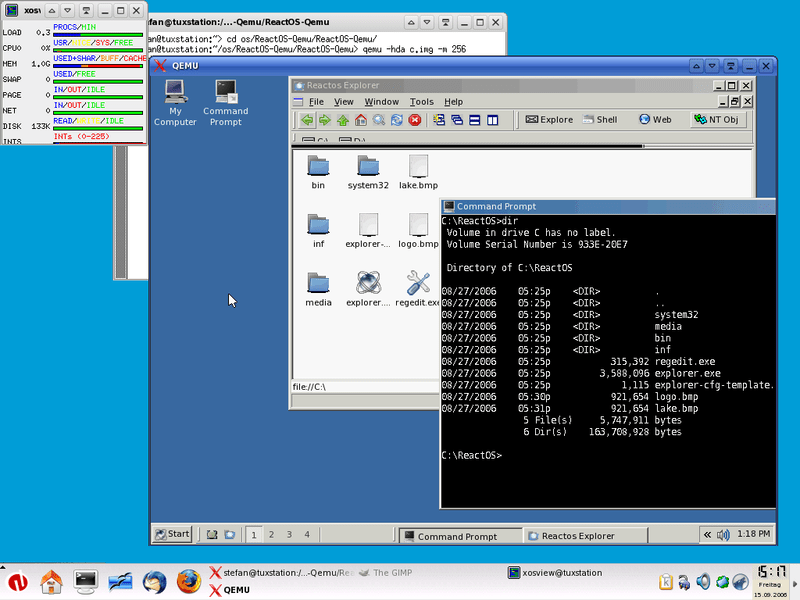In praise of qemu

qemu is another in a long line of great software started by Fabrice Bellard. It provides virtual machines for a wide variety of software architectures. Combined with KVM, it forms the foundation of nearly all cloud services, and it runs SourceHut in our self-hosted datacenters. Much like Bellard’s ffmpeg revolutionized the multimedia software industry, qemu revolutionized virtualisation.
qemu comes with a large variety of studiously implemented virtual devices, from standard real-world hardware like e1000 network interfaces to accelerated virtual hardware like virtio drives. One can, with the right combination of command line arguments, produce a virtual machine of essentially any configuration, either for testing novel configurations or for running production-ready virtual machines. Network adapters, mouse & keyboard, IDE or SCSI or SATA drives, sound cards, graphics cards, serial ports — the works. Lower level, often arch-specific features, such as AHCI devices, SMP, NUMA, and so on, are also available and invaluable for testing any conceivable system configurations. And these configurations work, and work reliably.
I have relied on this testing quite a bit when working on kernels, particularly on my own Helios kernel. With a little bit of command line magic, I can run a fully virtualised system with a serial driver connected to the parent terminal, with a hardware configuration appropriate to whatever I happen to be testing, in a manner such that running and testing my kernel is no different from running any other program. With -gdb I can set up gdb remote debugging and even debug my kernel as if it were a typical program. Anyone who remembers osdev in the Bochs days — or even earlier — understands the unprecedented luxury of such a development environment. Should I ever find myself working on a hardware configuration which is unsupported by qemu, my very first step will be patching qemu to support it. In my reckoning, qemu support is nearly as important for bringing up a new system as a C compiler is.
